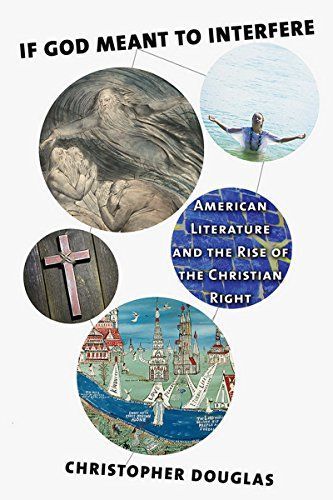
If God Meant to Interfere American Literature and the Rise of the Christian Right
The rise of the Christian Right took many writers and literary critics by surprise, trained as we were to think that religions waned as societies became modern. In If God Meant to Interfere, Christopher Douglas shows that American writers struggled to understand and respond to this new social and political force. Religiously inflected literature since the 1970s must be understood in the context of this unforeseen resurgence of conservative Christianity, he argues, a resurgence that realigned the literary and cultural fields. Among the writers Douglas considers are Marilynne Robinson, Barbara Kingsolver, Cormac McCarthy, Thomas Pynchon, Ishmael Reed, N. Scott Momaday, Gloria Anzaldúa, Philip Roth, Carl Sagan, and Dan Brown. Their fictions engaged a wide range of topics: religious conspiracies, faith and wonder, slavery and imperialism, evolution and extraterrestrial contact, alternate histories and ancestral spiritualities. But this is only part of the story. Liberal-leaning literary writers responding to the resurgence were sometimes confused by the Christian Right’s strange entanglement with the contemporary paradigms of multiculturalism and postmodernism —leading to complex emergent phenomena that Douglas terms "Christian multiculturalism" and "Christian postmodernism." Ultimately, If God Meant to Interfere shows the value of listening to our literature for its sometimes subterranean attention to the religious and social upheavals going on around it.